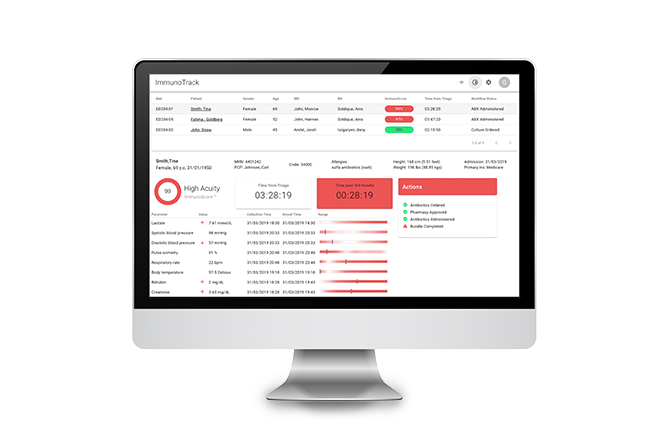
What You Should Know:
– U.S. Department of Defense awards Prenosis up to $4.3M to improve early sepsis identification for warfighters using point-of-care predictive diagnostics.
– According to the World Health Organization, more than 11 million people die from sepsis worldwide annually, more than the deaths caused by all cancers combined. Studies show that sepsis is the leading cause of death in U.S. hospitals with annual costs of treatment and rehabilitation estimated at $62 billion. Before the COVID-19 pandemic, at least 1.7 million adults in the United States developed sepsis. During the pandemic, this problem was greatly exacerbated, as most COVID-19 deaths are due to viral and/or bacterial sepsis.
– Prenosis to provide enhanced Sepsis identification in remote environments with portable “Prenostics”, promising a new era of preemptive and precise diagnostic testing.
Prenosis, Inc., a Chicago, IL-based precision diagnostics company transforming clinical diagnosis with predictive intelligence, announced today that the Defense Threat Reduction Agency (DTRA), a U.S. Department of Defense agency that confronts emerging threats, awarded the company up to $4.3M for further development of point-of-care technology for the early detection of sepsis for warfighters in the field.
Sepsis Impact for Warfighters
Warfighters in the field can often be exposed to infections, which can rapidly lead to life-threatening complications, including sepsis. It is currently difficult to identify which warfighters are at highest risk of sepsis, due to both the usual lack of practical access to a centralized clinical lab and the lack of accurate sepsis diagnostics in general. Timely and accurate identification of warfighters with the highest chance of deterioration due to sepsis could enable earlier medical evacuations and life-saving treatments. Chances of sepsis mortality have been reported to increase by 8% per hour if left untreated[1], highlighting the need to identify and treat these cases as early as possible.
Emergency Point-of-Care (ePOC)
Prenosis has developed its Immunix™ Emergency Point-of-Care (ePOC) system to meet this critical need. The Immunix™ ePOC system is one of Prenosis’ advanced platforms for predictive and precision diagnostics, or prenostics, which seek to more accurately and cost-effectively predict disease.
The Immunix™ ePOC System builds upon Prenosis’ Immunix™ platform, which uses machine learning algorithms leveraging a wide variety of biological and clinical data designed to holistically identify sepsis as early as possible in hospital environments. In this project, Prenosis will adapt the Immunix™ platform for detection of sepsis in the warfighter population at the point-of-care by replacing the use of standard large clinical lab analyzers with a mobile system. To develop the hardware pieces of the project, Prenosis will contract with immune insights company Kypha Inc. Prenosis has licensed Kypha’s RapiPlex reader and multiplex cartridge technology platform to rapidly supply data for its proprietary algorithms at the point-of-care in the field.
The ePOC system includes Prenosis’ novel ImmunoScan™ point-of-care technology, wearable devices, and a central mobile application that is linked to Prenosis’ proprietary NOSIS™ dataset, one of the largest hybrid biomarker-clinical datasets ever built for sepsis.
